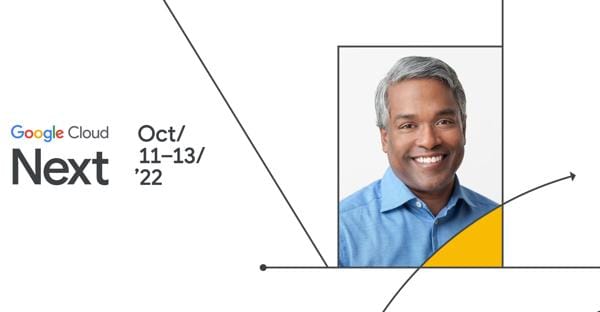Open cloud and artificial intelligence, the digital transformation according to Google
[ad_1]
Be prepared for tomorrow by making the right decisions today. Thomas Kurian, CEO of Google Cloud, started from a very explicit assumption in welcoming the audience of Next 22, an event in which the Mountain View house traces the present and the future of cloud computing applications. The warning that the manager addresses to companies is part of a turning point in the cloud sector, in which data and artificial intelligence are transforming everything around us and open and connected ecosystems become essential for everything we do. Openness and interoperability are therefore the keywords, according to Google, to tackle the market turmoil and complete the digital transformation process that the pandemic has accelerated.
Who has bet on Google Cloud
The example to follow, added Kuria, are the companies that have already chosen Google Cloud to impact on the management costs of the IT infrastructure and on data processing capabilities. They range from enterprise-class organizations (the world’s leading retailers, large banks like HSBC or major car manufacturers like Ford or Toyota) to emerging companies such as Tokopedia, one of the largest Indonesian e-commerce companies, or Doordash, the American giant of food delivery. with a network of 340 thousand merchants. Today the BigG cloud serves 70% of the top 100 “unicorns” in the world and 80% of the main players in the banking and automotive world, not to mention the myriad of public and government entities.
A more open data cloud
The message that Google sends to the endless audience of users of its technology has always been the same for years: continuity in innovation. In the first half of 2022, Kurian pointed out, there have been several product innovations and partnerships introduced to help decision makers, developers, IT teams, cybersecurity experts and now the focus of the company is on to take significant steps to deliver an even more open, extensible and powerful data cloud. The goal, in other words,
it is putting in the hands of the CIOs and of the entire management of an organization the tools – artificial intelligence obviously included (Google AI) – to use information from all sources and in all available storage formats. To expand the ability to work with all types of data, a new feature for supporting unstructured and streaming data is coming to BigQuery (Google’s petabyte-capable multi-cloud analytics data warehouse). significantly while the “fusion” between two business intelligence tools such as Looker and Google Data Studio goes in the direction of ever closer integration between these tools and proprietary machine learning technologies and the consequent greater ability to bring intelligence into applications to make decisions “Data driven”. Finally, another brick that Google has laid in an open key is the support of all the main company data platforms (Collibra, Elastic, MongoDB, Palantir Foundry and ServiceNow), with the declared intent to remove any barrier between data and to avoid data lock-in.

Five new Google Cloud regions
The effort that BigG promises to its users is to simplify the task of building the IT infrastructure best suited to the transformation process through a series of updates (of software and hardware type, see the adoption of the fourth Intel Xeon Scalable processors. generation) that will make it easier for organizations of all types and sizes to migrate even 20+ year old mainframe systems to the cloud. To do this, here is the expected new step of the Google Cloud global network, with the announcement of five new regions (Austria, Greece, Norway, South Africa and Sweden) in addition to the four announced earlier this year: as of today 48 regions are active on a global scale and serve companies from over 200 countries.
[ad_2]
Source link












